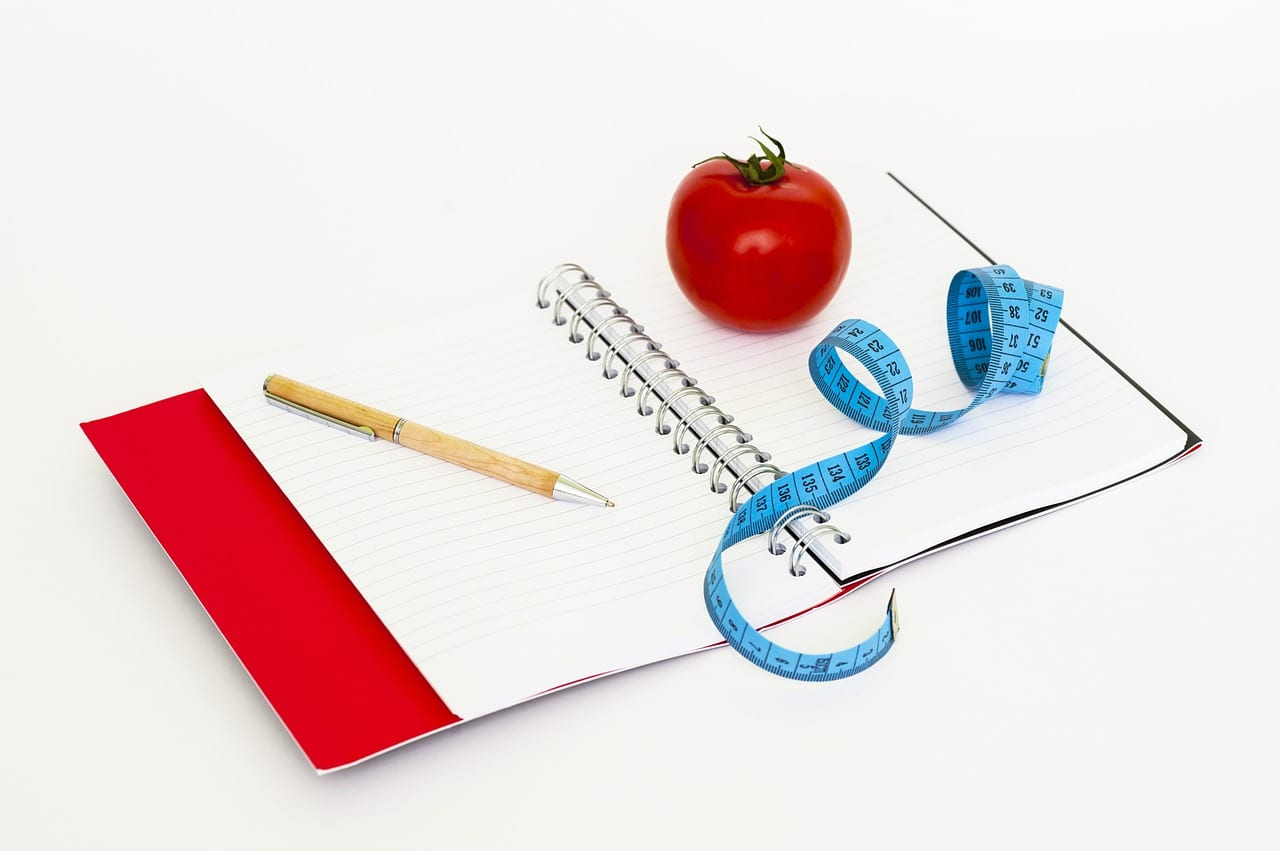7 Weight Loss Tips To Lose Weight and Keep It Off
Did you know that year-after-year losing weight is the most popular New Years resolution? Actually, I just made that up, but I wouldn’t be surprised if that was true. Part of this stems from the psychological and physiological ‘low’ that many people feel after the holidays which usually includes several days of eating and drinking – likely combined with a lack of exercise. Don’t worry, I’m here to help. Read and implement the tips below and you’ll be on your way to a psychological and physiological “high.”
1. Make action-based goal(s)
The best way to achieve a goal is to make a plan, as the saying goes: If you fail to plan, you plan to fail. If you are making a weight loss goal, instead of focussing on the number on the scale, aim to focus on actionable things like: how many times a week you are going to exercise, how you are going to adhere to your diet, etc. More specifically, make actionable goals about your weaknesses. By this I mean: what are your biggest behaviours relating to food and diet that you struggle with? This could be overeating at meal, eating too fast, late night snacking, avoiding exercise., etc. I’ll use late night snacking as an example to know you what I mean.
There two primary reasons people snack late at night:
1. To distract themselves from stressful emotions of the day that they struggle with.
Actionable goal: If you are someone that is stress eating, simply removing snacking at night is not going to work. Instead, make rules about what you can snack on, ex. choose low calorie high volume options like Smart Pop popcorn, veggies like carrots and snap peas, etc. At some point you’ll then need to work on reducing the specific stressor(s) in your life, or manage it some how that you can then eliminate the stress eating altogether.
2. They’re bored and/or have habitual eating patterns as a result of doing something else, i.e watching T.V and snacking.
Actionable goal: If you’re a habitual eater, simply acknowledge that this is a “brain fart” and interrupt this mental conditioning. Or, use the strategy with stress eating above.
These are just two examples, of many, and two possible strategies as actionable goals.
2. Play the Long Game
Think of the “Long Game” as the 80/20 principle. There is no quick and easy fixes with weight loss. Crash diets, detoxes, etc., don’t work – or at least not long-term. It took you a long time to put on the weight, accept this and understand that it will take some time to lose it. With the long game approach don’t be too restrictive with your food choices, and don’t be too hard on yourself when you inevitably slip up – because you will, and that’s ok. Just be consistent 80% of the time with your diet and exercise, and understand that 20% of the time you’ll likely deviate.
Ask yourself: when’s the last time you saw meaningful success with anything in life in one week, two weeks, or a month? How long did it take you to put away savings for a down payment on a house? How long did it take to get a raise or get assigned a superior role in your company? What I’m trying to get at is: it takes time, it’s better to practice moderation and stick with it, rather than the quick aggressive approach that doesn’t stick. I know this might not be “sexy,” but it’s the truth. Once you accept this, the weight loss “yo-yoing,” your stress associated with food, and your weight will start to consistently move in the right direction. So, go ahead and enjoy that glass of wine – it’s not going to ruin your progress. In fact, it might help it.
3. Keep eating out to a minimum
When I refer to eating out, I’m referring to both fast food and restaurants. Making food at home is almost always the best option for your health, waistline, and even wallet. Time and lifestyle permitting of course, but the more you stick to whole foods the greater chance your are getting more nutrients, and making it harder for your body to break down – this is a good thing. If you must eat out, read some of the following:
- How to eat “better” when eating at sit-down restaurants
- Can You Still Eat Pizza Or Burgers While On A Weight Loss Program?
4. Minimize Caloric beverages from your diet
If you’re trying to create an energy deficit so that your body uses it’s fats stores, caloric beverages aren’t a “smart” use of your daily allowable calories. For that reason I suggest you steer clear if you can, or at the very least restrict your intake. Caloric beverages are really any drink with calories, namely pop, juice, coffee and tea (if you are adding sugar to it), and yes Alcohol. This is likely one of the harder ones for people to restrict, specifically caffeinated beverages and alcohol. Some of you might be interested in reading this: Can You Still Drink Alcohol While Trying to Lose Weight?
5. Get 7+ hours of sleep
Proper sleep is key. For many of us we are stressed, exhausted, and under-slept. This makes it difficult to have proper emotional control over some of the food choices we make each day – comfort food for stress, too tired to make a healthy home-cooked meal. Furthermore, your body’s levels of hormones might be out of wack, more specifically cortisol, and this may lead to your body holding onto it’s fat stores a little more tightly. I wrote a more in-depth article about this if you’re interested: How Does Poor Sleep Quality Effect Your Ability to Lose Weight?
6. Do exercise that you enjoy
This is something I recommend to all of my clients, specifically in reference to weight maintenance. There’s a time and a place to be lifting weights in the gym, I won’t get into the specifics for that but as a blanket statement: find an exercise/activity that you enjoy doing, whether that’s walking, jogging, CrossFit, Zumba, Yoga, and do it regularly.
The long term result of finding an exercise that you enjoy is that you’ll do it primarily because it’s fun, all of it’s health benefits are secondary. Furthermore, because you enjoy it you are much more likely to continue doing it. This is why I play squash (the sport, not the vegetable), I know it’s healthy for me, but I do it because its fun.
7. Eat 20% less than you usually would
Kids are great at regulating their hunger. If you give them food in a buffet style without any external cues (Dad yelling “finish all your food!), they will stop eating when they’re full and this is often a very appropriate amount of food. Unfortunately, as we age, we lose this skill – for many reasons. One reason, is that we live in a faster-paced society that encourages productivity and not a lot of time is spent relaxing and enjoying food. As such, we eat too fast and don’t allow the proper satiation (feeling of fullness) signals to let us know when we are full – this can take up to 20 minutes. Further, some of us – like myself – have been trained as kids to finish what’s on our plate. Both of these reasons can often lead to over-eating and that uncomfortable feeling of being bloated.
So, as a general rule of thumb eat 20% less and this should help.
I hope the above 7 tips can be of value to you in 2018.
Wait for it…*Company Plug*
Given that many new years resolutions are weight loss related, if you need some help feel free to reach out to me for help – I really enjoy helping people lose weight, whether that’s working with them in the gym or as an Online client. Also, If there was something in this post that stuck out, and you want to know more about it feel free to contact me.
Till next time,
-Mike
About the Author: Michael Fouts
Mike is the Owner of OverHaul Fitness. He has helped many clients successfully lose weight; and keep it off. In his spare time you can find him eating sandwiches (the solid, or liquid barley form: Beer), watching thought provoking movies or tv series (like Westworld), or doing something active like squash, hockey, or training for triathlons. Click on the link above, or HERE, to read more about Mike.
Related Posts:







